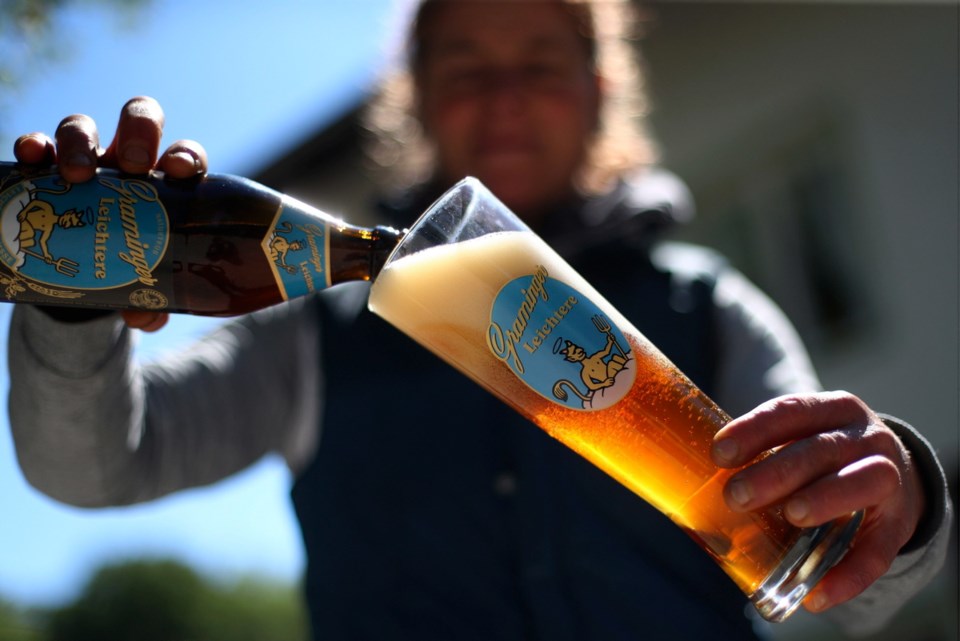British Columbians are buying more alcohol during the pandemic lockdown as sales during March and April spiked.
And that has some addiction experts concerned.
Dr. Tim Stockwell, director of the Canadian Institute for Substance Use Research and a professor of psychology at the University of Victoria, said several factors contribute to the increased buying: people are cooped up at home, worried about their jobs and feeling stressed living in uncertain times.
He also cited stockpiling, alcohol deliveries with higher minimum orders, cheap-drink options, extended hours of liquor retailers, increasing exposure to drinking on social media and the overall loosening of regulations.
“When we get through this [pandemic], we are going to be left with a massive alcohol hangover because restrictions will be tougher to tighten up again,” said Stockwell.
He said increasing alcohol consumption often brings health and social problems, and can place a burden on front-line responders and health care workers during the COVID-19 pandemic.
“During this time, we have to be vigilant and mindful of what we are doing, but under the influence we can be the opposite,” said Stockwell. “The risks of becoming seriously ill are higher when drinking.”
Stockwell said increased drinking “places an enormous burden on our health care system.”
He disagreed with the province extending retail hours. (The government declared liquor sales an essential service in mid-March and allowed stores to extend operating hours from 7 a.m. to 11 p.m. if they chose to do so.)
Stockwell noted that research shows alcohol-related hospital visits far outstrip those for many other illnesses. They outnumbered heart-related visits by three to one last year.
Data from the B.C. Liquor Distribution Branch revealed the wholesale value of alcohol sold rose to $606 million for March and April — up 21.5 per cent from the $498 million during the two-month period in 2018, and above the $516 million sold last year.
The volume of beer, spirits, wine and other alcoholic beverages was 76.6 million litres in the same two months this year. That was up from 65.5 million litres in 2018.
The liquor branch figures include sales to 670 private liquor stores, 197 government liquor stores and more than 8,000 licensees such as restaurants and bars.
There was no breakdown of who bought how much, but most bars and restaurants have either been closed since mid-March or are offering limited deliveries or pickups.
Last month, a Canadian Centre on Substance Use and Addiction poll showed that 25 per cent of Canadians aged 35 to 54 and 21 per cent of people 18 to 34 were drinking more during the lockdown.
Respondents cited stress and boredom for the increases. Also in April, the CCSA published a report on the risks of keeping retail liquor stores open longer, citing increased consumption and a rise in domestic violence.
On Tuesday, a survey of about 1,000 Canadians suggested heavy drinking is highest among younger people and those worried about personal finances due to the pandemic.
The survey, conducted between May 8 and 12, and commissioned by the Centre for Addiction and Mental Health showed nearly 30 per cent of those between 18 and 39 reported heavy episodic drinking at least once in the previous week.
Dr. Hayley Hamilton, senior scientist with the centre’s Institute for Mental Health Policy Research, said alcohol may be used as a coping mechanism by those whose careers may have been sidelined due to the pandemic, creating unprecedented uncertainty about their future work prospects.
She said the impact on their social lives, with summer activities such as concerts being cancelled, could also be a factor for those who may be lonely and drinking more.
However, she said it’s important for anyone who may be self-medicating by drinking excessively to reach out for help.
“If binge drinking continues there are greater concerns because of all the harms associated with alcohol. And we have to think of those harms when we’re beyond the epidemic.”
— With files from the Canadian Press



